
GO Technology: The truth behind no-shows
Hospitality loyalty programmes are booming – with big names such as Wagamama and Leon both recently launching their own schemes. Operators are increasingly adopting diverse methods to cultivate customer loyalty, leading to creative and engaging experiences for their customers. As part of our Loyalty Collective, where we gather top industry names to discuss all things loyalty in an open and honest conversation, we spoke with some of the industry’s top operators to explore various loyalty schemes they are implementing.
In March this year, Gusto become the UK’s first casual dining brand to launch a subscription-based membership programme. The Gusto Platinum Club is £65 a year or £6 monthly, and members receive 40% off food from Sunday-Thursday for themselves and up to three guests. Members also receive a complimentary bottle of Prosecco to take home upon sign-up and exclusive invites to menu launches.
This model not only rewards loyal customers but also encourages dining out during quieter days of the week.
And how is this working out for Gusto? Well, Kat Schofield, Marketing Director at Gusto, told us that the subscription model is boding well. Since launching, they’re seeing frequency of visits double, along with a noticeable increase in upsells. Kat says that customers are opting for nicer bottles of wine, or going for two rounds of cocktails, all thanks to the 40% discount off food.
Flat Iron has taken a unique approach with its Carcass Club, which is a series of exclusive one-off events that highlight rare types/cuts of beef.
For £20 per person, attendees receive a delicious meal that includes a special steak, beef dripping chips, sauce, a glass of wine, and Flat Iron’s signature popcorn and Tahitian vanilla ice cream. This event is walk-in only and operates on a first-come, first-served basis, adding an element of excitement and exclusivity.
Darren Smith, Head of Operations at Flat Iron, said that by offering a slightly elevated experience, Flat Iron are cultivating customer loyalty without relying on a cut and paste offer. This approach makes each visit feel special and effectively showcases and promotes a particular restaurant.
At Cosy, loyalty takes on a tangible form with their Penny Club. Customers receive a physical coin that grants them access to a special offer: 2-for-1 house cocktails from Tuesday to Saturday. Membership is by invitation only, creating a sense of exclusivity. Customers share their name and favourite cocktail, which is recorded in a physical book at the cocktail bar, enhancing the personal touch of the experience.
Rosie Lewis-Marsh, Hospitality Sales and Marketing Consultant for Yummy Collection, emphasises the importance of having a compelling story behind loyalty programmes, rather than simply offering free points. She observes that the younger generation, who have always accessed music online through platforms like Spotify, are now rediscovering CDs and vinyl records. Rosie says that people crave something tangible and want to feel connected, like being part of a club, and this approach to loyalty schemes can create that club-like atmosphere, making customers feel truly involved.
These innovative loyalty schemes illustrate how hospitality operators are thinking outside the box to engage customers and foster lasting relationships. By offering unique experiences and personalised rewards, they are not just retaining customers but creating a community that keeps returning for more.
What with Wagamama and Mowgli recently launching loyalty schemes, Deliveroo investing in an advertising campaign to promote its Deliveroo Plus scheme this autumn and the news earlier this year that Pret A Manger was to ditch its much-feted subscription model, customer loyalty is a hot topic in hospitality right now.
But I don’t believe customer loyalty exists. Recently, I was approached by hospitality tech firm Zonal to see if I’d like to work with it on a project around this very subject. I started by telling a story about my love for Honest Burgers. We have an Honest Burgers right opposite our office. In fact, if the fire alarm goes off, it’s our designated meeting point. We have a lot of fire drills.
I loved going in there. The staff were friendly, the music was perfect, and it had plants everywhere that gave a really nice feel to the place. And I had a rather specific, rather odd order. I liked to have the plant burger, but I really like bacon, so I’d always add some of that on top, too. The vegan plus meat combination could have easily been a cause for confusion, but rather than causing issues, it simply became: “Would you like the usual, sir?”
Then, near Christmas, the manager of that restaurant left to go elsewhere. And when I next went in, everything had changed. The staff were still lovely, but the music had changed. She chose the playlists, apparently. The plants were all gone – also hers, brought in from home. And, when I put in my usual order, the waiter reappeared ten minutes later with a question from the chef: “Sir, just to check, did you really mean real bacon with that?”
Loyalty is an overused term in organisations and hospitality, and it’s a dangerous one. Because if leaders believe their customers are loyal they stop trying to impress them, focusing on winning them in the first place, then gradually taking their custom for granted.
Quite simply, if you stay more useful to your customers than the competitors and alternatives, your customers will stay with you. But if someone else becomes more useful – a better product, better price, better experience, more socially desirable brand – then they’ll go elsewhere. But where you can build some sense of loyalty is through your people – as Octopus, AO and First Direct show.
Octopus Energy is taking the highly regulated energy industry by storm by empowering its team to come up with creative ways to solve its customers’ problems. Customers hated the hold music, and so now, should you be put on hold by Octopus, you’ll hear a song from the year you turned 14 – the age that, on average, a person first engages with music. Another example is the Octopus Wheel of Fortune. Every time an Octopus customer enters a meter reading, they can spin the “wheel of fortune” to win anything from 1p to £512 credit on their account, and more than 100,000 of them a month do so. This shows an understanding of the inconvenience of submitting meter readings for customers and actively recognising and rewarding them for doing so.
Another industry you may not think to look at for loyal customers is white goods, but online retailer AO is one of the highest rated UK retailers of any kind on Trustpilot. That’s in no small part down to the fact that one of its core values is: “Treat every customer like your own gran.” But, more than this, staff are supported to deliver on this promise. Stories are manifold, from delivery drivers paying for pizzas when a new oven can’t be fitted in time for dinner to local teams arranging for an AO branded van to visit a six-year-old van fan on his birthday.
Likewise, banks are about as well known for building loyalty among customers as utility firms and white goods retailers, but talk to any customer of First Direct and most will extoll its virtues. Again, this is down to first-class customer service delivered by teams supported to do so. First Direct famously “hires for the smile, trains for skill”, and then enables its teams to listen to customers and act with empathy – no scripts, no call handling time targets and calls answered by real people.
The hospitality industry has a huge advantage over others in this, as a people-focused sector with colleagues who know that customer experience is crucial to delivering a great experience. There are other complexities to this, of course (the ambition of the leadership to provide excellent customer experiences, great training, a fundamental understanding of what drives your customers’ decision making, a recognition that not everything in good business must deliver an immediate return on investment).
However, while I maintain that customers are not loyal to businesses, I do believe they are loyal to other people – and these can be your people, assuming you give them the correct support and tools.
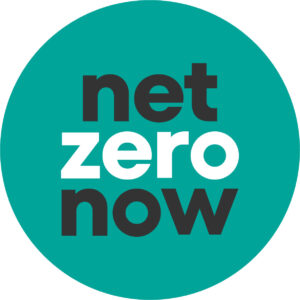
Guest blog by Net Zero Now
The climate crisis is no longer a distant threat but is already having a very real impact on the hospitality industry. That impact is both direct, resulting in increased costs as supply chains are put under increasing pressure and the cost of energy increases, and indirect, driving new attitudes and expectations of customers, employees, and investors.
But with these challenges come opportunities – to improve your bottom line, to establish yourself as a leader in an increasingly eco-conscious market and to increase the value of your business.
The hospitality industry is uniquely vulnerable to the effects of climate change. Rising temperatures, extreme weather events, and shifts in global ecosystems directly affect the supply chains that businesses rely on, resulting in higher costs and lower / less reliable availability.. Energy prices are also likely to soar as demand for cooling increases and fossil fuel resources become scarcer.
Indirectly, the climate crisis is changing the attitudes of the people who make your business thrive – your customers, your employees and your investors.
Businesses also face increased regulatory pressure. In the UK, larger businesses (£36m+ t’over) are already required to report Scope 1 and 2 emissions under the Streamlined Energy and Carbon Reporting (SECR) regulations. These requirements are expected to expand in the near future, reducing the threshold to include more businesses and increasing the reporting requirements to include Scope 3 emissions (the emissions from your supply chain, including all the food and drink you buy throughout the year). This is particularly relevant to the hospitality sector which contributes up to 15% of the country’s greenhouse gas emissions (Net Zero Now, 2024, and where Scope 3 emissions account for c.70-95% of emissions, the vast majority of which comes from the food served (see Figure 1).
Figure 1: Emissions Sources from different types of hospitality business
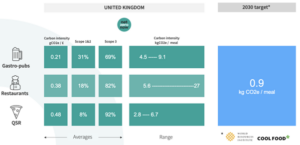
Source: Net Zero Now Customer analysis; Cool Food 2022
As Figure 1 also shows, as an industry, we have a long way to go to meet the 2030 targets for carbon emissions per meal. Getting anywhere near these targets will take more than removing plastic straws and adding a few LED lightbulbs, hospitality businesses need to understand their full carbon footprint, including Scope 3 emissions, and find ways to minimise their climate impact.
I know what you’re thinking – “it’s too expensive”, “it’s too complicated”, “we’re too busy” – and until recently, you might have been right. But…
and , as if all of the above wasn’t enough
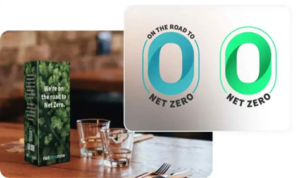
Ready to turn the climate challenge into a business opportunity? Discover how Net Zero Now’s integration with Zonal can help you accurately measure, manage, and reduce your carbon footprint. Start your journey towards sustainability today—contact the Zonal team and see how we can support your business in leading the way to a net zero future.
Sources:

With consumer spend tightening and visit frequency reduced, a loyal customer base providing that all-important repeat business is the holy grail for operators looking to succeed in today’s difficult trading landscape.
Our previous research in partnership with CGA by NIQ revealed that consumers, on average, feel loyal to 2.1 hospitality brands – but how likely are their choices of preferred venues to change?
In this exclusive survey of 5,000 British hospitality consumers, we reveal how likely consumers would be to switch their preference to a different hospitality brand, how hospitality stacks up against other sectors, and the role loyalty schemes play in ensuring customers keep coming back to you for more.


GO Technology: The truth behind no-shows

GO Technology: Brand loyalty in hospitality

GO Technology: Fixing people’s hospitality bugbears
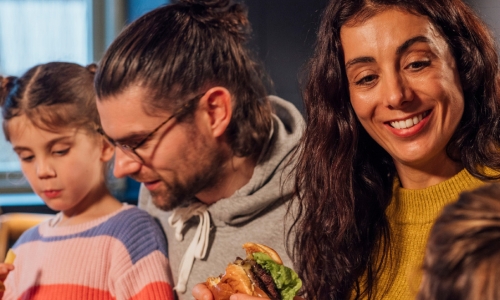
GO Technology: The value of hospitality – Exploring consumer insights and perceptions

Influence, loyalty and technology: Key guest trends from 2023

GO Technology: The New Loyalty Landscape – How the cost-of-living crisis impacts hospitality

GO Technology: People vs Tech: What guests want in 2023

GO Technology: Identifying the Influencer – Reaching hospitality’s decision makers
In a cost-of-living crisis, consumers want their pounds and pennies to work hard for them, and so expectations are raised when it comes to going out for a drink or a meal. We wanted to find out what the top frustrations are for consumers when it comes to hospitality visits, to help our customers identify the issues and work out how to solve them – or prevent them from happening in the first place.
Our most recent GO Technology survey in partnership with CGA by NIQ, found that, when asked what the top five bugbears are, the following reasons came out on top:
The good news is that there are many ways tech can help operators tackle these issues and other common issues – read on to find out more…
Waiting a long time for food and drink to arrive is one of consumers’ biggest bug bears but using tech to bring ordering and payment to customers is a great, simple solution to combat this frustration.
Providing the option for customers to order via an app online. or having handheld ordering devices for staff to take customer orders on, can help speed up service and make your operations much more efficient. Not only do these alternative ordering methods remove the need for customers to wait to be served in the case of apps or online ordering, but staff are not required to walk back to the main POS to re-key order information in, which saves time and reduces the risk of mistakes being made.
Having a digital kitchen management system helps streamline processes for front- and back-of-house staff which will result in a better experience for the customer – and reduce the risk of hot food turning up cold or food being served at different times.
With kitchen management systems like Zonal’s Kitchen iQ, every order is automatically passed through to the kitchen for fulfilment and electronically displayed on a screen, showing each member of the team what to work on and what their next task will be. The order status is also available to front-of-house staff, allowing them to update customers if necessary. Tracking and managing orders in this way can also help teams manage their workload, as well as reduce and even avoid bottlenecks. For businesses with multiple sales channels, such as delivery or click and collect, kitchen management tech can also provide kitchen staff with complete sight of which channels an order has come from to ensure they pick up orders at the right time.
With a streamlined back-of-house, you’ll also be improving speed of service, enabling you to turn tables faster.
We know that consumers don’t want promises broken, especially if it involves promotions, offers and rewards they believe they are entitled to. With 88% of people finding missing out on these frustrating, adopting a digital loyalty scheme which makes it easier for customers to accrue and use points and rewards, and for staff to process reward redemptions, will be a great way of avoiding this issue.
With a digital loyalty scheme in place, operators can also make sure that they are targeting their customer-base with rewards and offers that are likely to resonate with them, encouraging them to visit and increase spend per head. When integrated with other tech in the business, operators can combine their loyalty data with data from across the wider business, to build a better understanding of what they spend their money on, and then create tailored rewards based on this to further drive their loyalty scheme’s effectiveness.
Having a table management system linked to online bookings empowers operators to better manage table covers throughout service. The right system should allow operators full control of their covers, showing a table’s in-session meal stages to manage waiting lists and walk-ins, as well as which will be the next available table based on group size.
The tech can even arm operators with valuable insight such as average table turn times depending on group sizes – helping them to remove some of the guesswork during planning so that customers are never left waiting for their table to become free. In the event that they are left waiting, it provides operators a chance to fix this by communicating when exactly their table will become free or offering them a complimentary drink whilst they wait.
What’s more, this tech can also provide the opportunity for operators to open-up tables for rebooking at the earliest opportunity to ensure tables aren’t sat empty for long.

Guest blog by TiPJAR
With the 1st of October fast approaching, the hospitality industry is bracing itself for a significant shift in tipping legislation that will reshape the way businesses manage and distribute tips and service charges. So, to help, we have produced a quick step-by-step guide on how to transition to the Fair Tips Act.
You should start making changes by crafting a clear and comprehensive policy that spells out exactly how tips and service charges are shared in your business.
Like it or not clearly communicating your policy and empowering your teams with knowledge about their rights regarding the upcoming changes in tipping regulations is about to become an essential part of compliance.
Now might be the perfect opportunity to explore the benefits of implementing a tronc system if you haven’t already done so.
Implementing a tronc system offers several advantages over not having one:
Got a tronc arrangement already running? Time for a check-up!
It’s time to dive into the numbers and assess how the legislation may affect your financial landscape. Before implementing any changes, carefully review the terms and conditions associated with your tronc.
Previously, it wasn’t uncommon to agree with staff to take a different wage or salary in exchange for a different share of tronc or tips, usually a reduced salary for a higher share of tronc. However, under the new legislation, you can’t leverage commitments on tronc distribution as part of salary negotiation. Staff wages or salary (whether for new starters or existing team members) must agree without reference to tronc distributions.
Employers must clearly define the proper basic pay amount, excluding tips, in employee contracts to avoid liabilities.
When preparing for the new tipping legislation, it’s essential to assess your technology solutions to ensure they align with compliance requirements. Tip management software and modern point-of-sale (POS) systems offer efficient ways to streamline tip distribution and enhance accuracy. These solutions can automate tip calculations, track tip amounts for reporting, and ensure transparent distribution among staff members.
Legal or financial experts with specialised knowledge of hospitality industry regulations can provide invaluable guidance and clarity. They can assess your specific situation, review your existing practices, and offer tailored recommendations to ensure compliance with the new legislation.
As the countdown to October 1st begins, hospitality operators must take proactive steps to ensure compliance with the upcoming tipping legislation.
At TiPJAR, we prioritise working closely with you and your team to establish fair, transparent, and compliant policies tailored to your business’s unique needs. Recognising the diversity of operations, we reject a one-size-fits-all approach and instead collaborate with you to craft policies that resonate with your values and team dynamics, whether you run a bustling restaurant, a cozy cafe, or a lively bar.
Our Supertronc product offers automated tracking of transactions and tip distributions, ensuring staff transparency and timely payments. By implementing a compliant tronc policy through TiPJAR, businesses can enjoy significant savings on National Insurance contributions while streamlining tip administration and maximizing cost-effectiveness.
We’re here to support businesses every step of the way. If you’d like to find out more about our solutions – get in touch with us here.
If you’ve ever wondered how travel agencies, travel management companies, and even your corporate travel department find the best deals on flights, hotels, and car hire, the answer likely lies in a Global Distribution System (GDS).
But what exactly is a GDS, how does it work and how can it benefit your hotel? If you’re new to GDS software, then we’ve got you covered. This guide will break it down for you and provide five compelling reasons why connecting to these systems can be a lucrative additional revenue stream.
Think of a Global Distribution System (GDS) as the backbone of the travel industry. It’s essentially a massive database that contains information about flights, hotel rooms, car hire, and other travel-related services. But it’s not just a static database – it’s a dynamic platform that allows travel providers to search, compare, and book travel products in real time.
Travel agencies, Travel Management Companies (TMCs), and corporate travel departments all utilise GDS software to secure the best possible rates for their clients or staff.
By leveraging GDS, these organisations can compare prices availability, and booking options efficiently, ensuring cost-effective and convenient travel arrangements.
GDS works by connecting travel services, such as airlines, hotels, and car hire companies, with travel providers. It aggregates real-time data on availability, pricing, and schedules, allowing users to search, compare, and book travel services seamlessly.
GDS operates as a centralised database that facilitates transactions between travel industry players, ensuring accurate and up-to-date information is accessible, thereby streamlining the booking process and optimising travel arrangements.
Connecting to a GDS opens your hotel to a vast network of 750,000 travel agents, TMCs, online booking platforms, and corporate clients, expanding your reach, visibility, and potential customer base.
GDS platforms offer tools for centralised inventory management, making it easier to manage room availability, rates, and restrictions across multiple distribution channels.
GDS platforms allow for dynamic pricing strategies, enabling hotels to adjust rates based on demand, market trends, and competitor pricing to maximise revenue potential.
GDS platforms provide valuable analytics and reporting tools, offering insights into booking patterns, guest demographics, and market trends, which can inform strategic decision-making and marketing efforts.
By connecting to a GDS, hotels can gain a competitive edge by reaching new markets, attracting more guests, and optimising revenue potential in the highly competitive travel industry.
OTAs, such as Expedia and Booking.com, provide a user-friendly platform for consumers to search, compare, and book travel services directly online.
In contrast, GDS platforms act as intermediaries that connect travel service providers with travel agencies, TMCs, and corporate travel departments, offering comprehensive access to travel data and booking capabilities.
OTAs undoubtedly play a significant role in driving bookings, but overlooking the potential of the corporate travel segment can be a missed opportunity. And with GDS being in the top five revenue-generating channels in the UK, maintaining a diverse channel mix that includes both OTAs and GDS is key to optimising your property’s visibility and increasing direct bookings.

Choosing a provider for GDS distribution is a crucial decision for hotels seeking to maximise their reach and revenue potential.
HotelREZ a High Level integration partner, stands out as a leading SaaS-enabled company for accommodation providers, offering comprehensive solutions to more than 2,500 independent hotels, apartments, and hotel groups in more than 100 countries, including private label GDS chain code solutions.
What’s more, its GDS software has an extensive reach, connecting to over 750,000 travel agents, TMCs, or corporate travel departments.
With an impressive portfolio of customers, including renowned names such as StayCity ApartHotels, Dorint Hotels & Resorts, and The Zetter Group, HotelREZ has established itself as a trusted partner in the hospitality industry. Its broad client base underscores the company’s ability to deliver results and support the unique requirements of various hoteliers.
In conclusion, connecting to a GDS can unlock a world of opportunities for hoteliers, offering access to a wider distribution network, increased visibility, and valuable data insights. And embracing HotelREZ GDS as another revenue stream can be a strategic move to drive growth and success in the dynamic travel industry.
To find out more download HotelREZ’s Insights Report or to talk to a member of the HotelREZ team, simply email info@hotelrez.com, and one of their GDS experts will call you back.
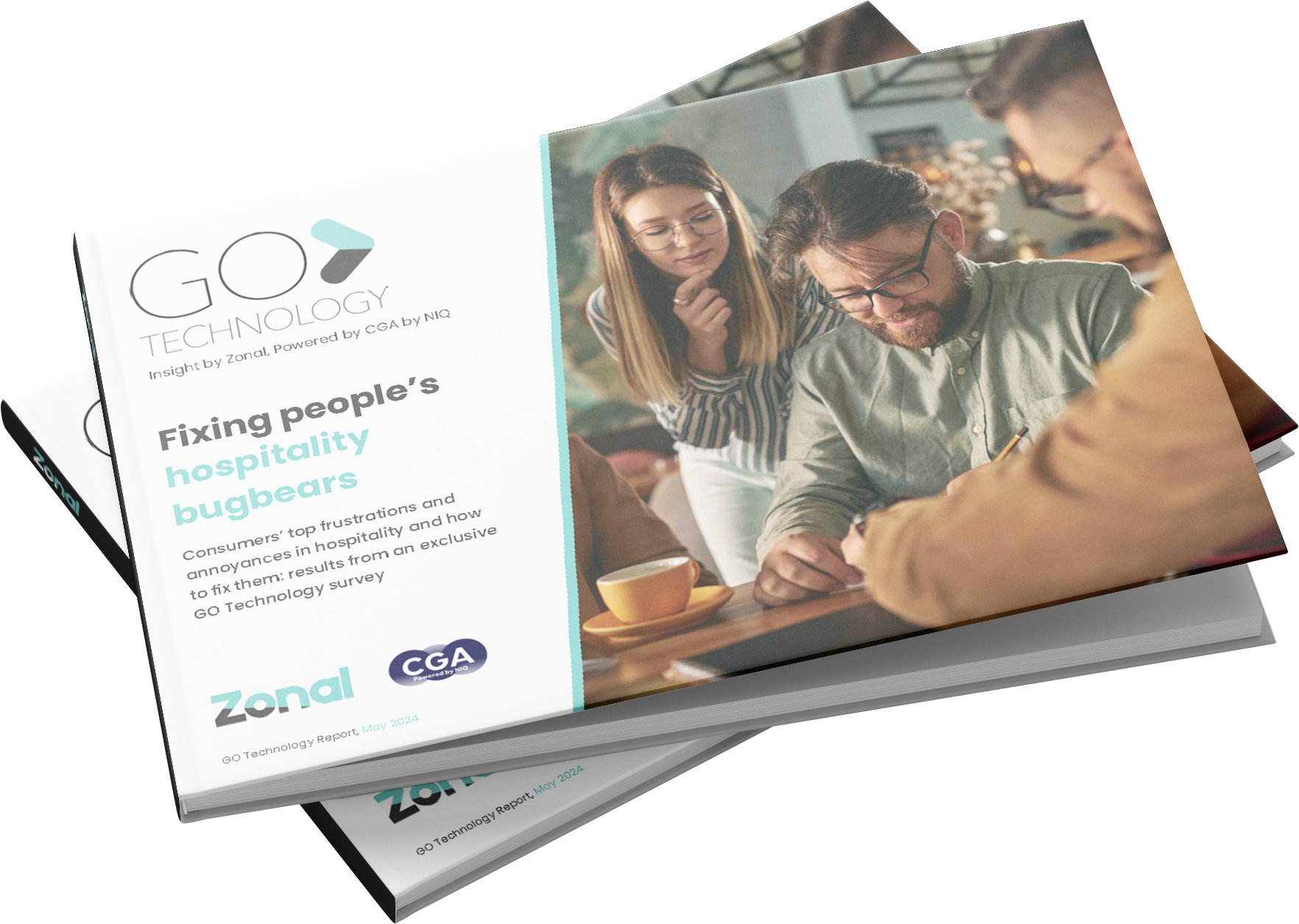
Our previous GO Technology research revealed that hospitality still plays an important role in people’s social lives despite cost pressures, but with 49% of consumers saying they’d become less loyal to a brand after a few bad experiences, it’s incredibly important for hospitality businesses to deliver frictionless experiences that meet guests’ expectations, without any frustration during the journey.
This exclusive research of 5,000 hospitality consumers reveals the biggest frustrations guests encounter when engaging with venues, both in-venue and pre-visit, how these frustrations differ between demographics, and what actions they are likely to take following a frustrating experience.
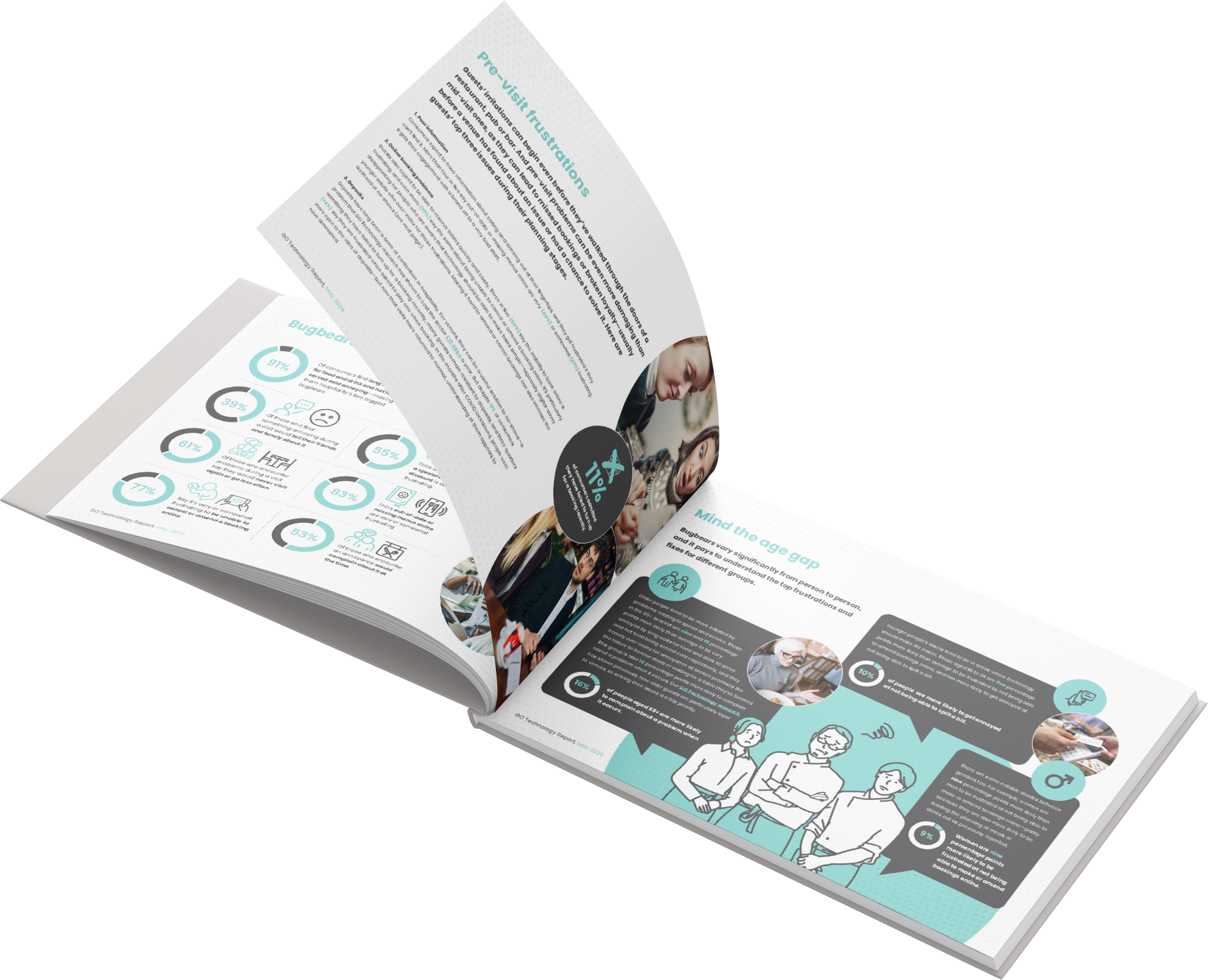
Download Pete Saunders’ latest presentation on Marketing your F&B to discover effective strategies for maximising the potential of your restaurant, bar, and room service.
In this detailed and insightful presentation, Pete provides expert guidance on:
This presentation walks you through practical hints and tips to enhance your services, as well as discussing various channels to promote F&B offers, loyalty programs, and personalised discounts to guests. By implementing these strategies, you can improve your F&B engagement, boost loyalty, and maximise your hotel’s F&B potential.
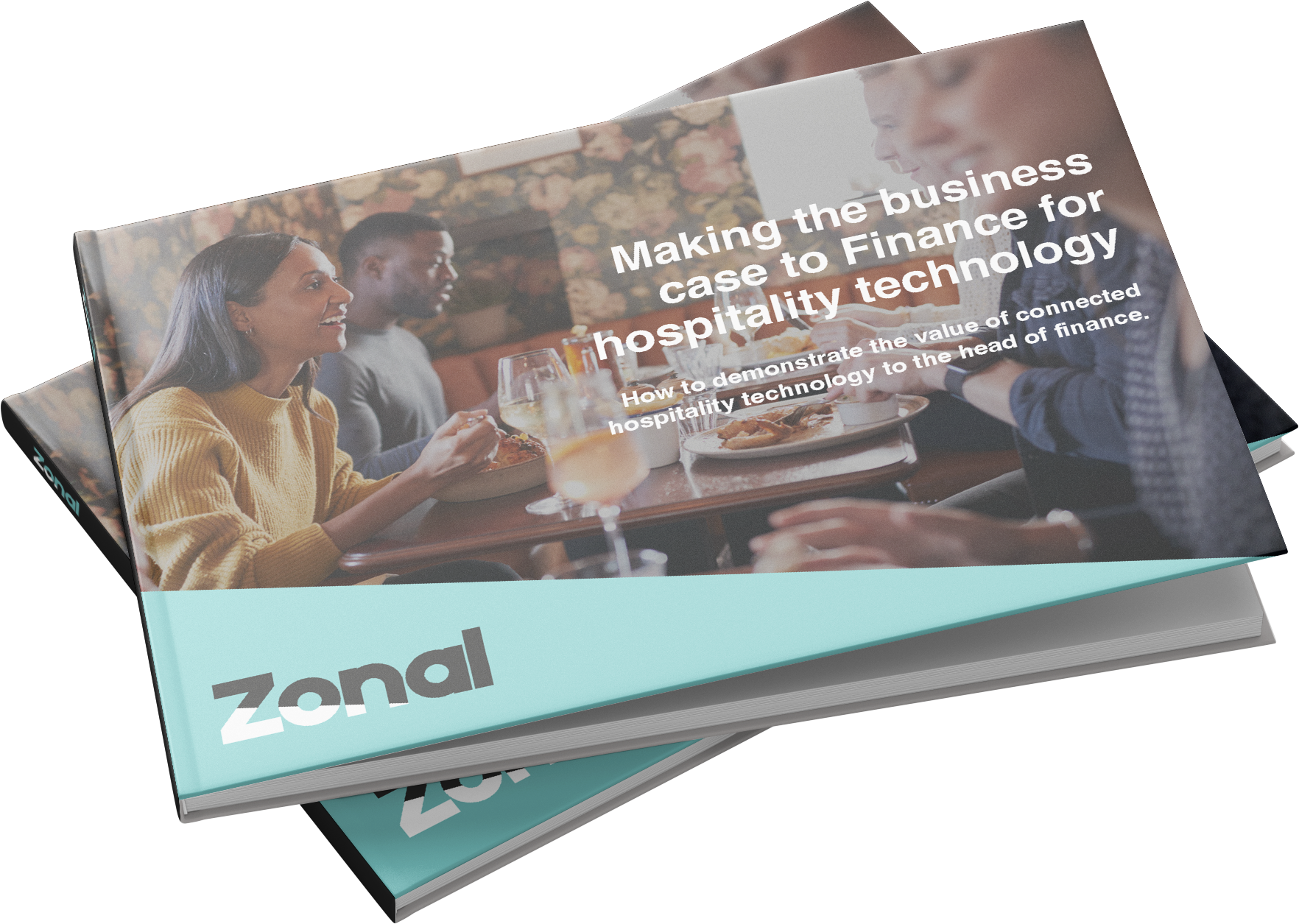
As an operator working day-in, day-out with your front- and back-of-house teams, you may already be acutely aware of the tangible benefits your technology can offer to your business. However, it can be difficult to “sell” those benefits across for stakeholders within the business that may not be direct users of the technology on a daily basis.
In this guide, we explore how hospitality technology can also meet the needs of your finance team, how the operational improvements it brings can have a positive impact on the wider business, as well as how it can help to deliver more accurate, data-driven insights that facilitate better decision-making to drive the business forward.

